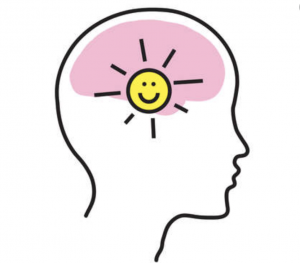Positive Psychology 101: Well-Being

What Is Positive Psychology?
Psychology helps us to understand the things that go wrong in individuals, groups, and organizations. However, these improvements have a deficiency in comprehending what people do right. As a result, in 1998, Martin Seligman who is the father of positive psychology gave important advice to psychologists. This advice was to recall the long-forgotten mission of psychology which is to develop human strength and genius. As a result, Seligman created a new movement in psychology: Positive psychology.
Positive psychology is a scientific approach to analyzing human thinking, emotions, and actions. These focus on strengths rather than shortcoming and creating the “good” in life rather than fixing the “negative”. This means that there is an acceptance of the negatives. Psychopathology or illnesses are not the focus of this field. The highlight of this field is to look at the things that make individuals get more satisfaction from their lives. Also, to look at things that make these individuals happier.
We can divide dimensions of positive psychology into three levels: Subjective, individual, and society. Firstly, subjective level means our experiences. Relate to our experiences, what we feel, and our constructive thoughts are the highlights. Secondly, the individual level is related to our traits, thus our personality. Lastly, society level is related to addressing themes like developing healthy family formation or our overall public qualities. Thus, positive psychology is not only about being happy but also finding meaning and being satisfied.

International study reveals low levels of wellbeing among children in Wales. August 26, 2020. (n.d.). [Illustration]. Cardiff.Ac.Uk. https://www.cardiff.ac.uk/news/view/2431870-international-study-reveals-low-levels-of-wellbeing-among-children-in-wales
What About Well-Being?
One way or another, we hear the term well-being in our daily lives, classes, or books that we read. There are different explanations of well-being, but what well-being really is? Well-being means to experience being healthy, happy, and comfortable. It entails having strong mental health, life happiness at high levels, having meaning, and being able to deal with stress. Mainly, well-being is feeling good. We should also know what well-being is not. Well-being is not the same thing as not having a mental illness.
According to Seligman, five aspects of well-being help us to understand whether the individual’s well-being is balanced or not. PERMA model; positive emotions, engagement, relationships, meaning, and accomplishments are the essential principles of well-being. We can see how well-being does, thus positive psychology spread across all areas of our lives.

Positive Psychology Timeline. Oct 11, 2013. (n.d.). [Illustration]. Livehappy. https://www.livehappy.com/science/resources/positive-psychology-timeline
Different Constructs Of Well-Being
After mentioning the multidimensionality of well-being, so it is time for digging deeper. There should be a balance between dimensions that we feel wellness in. For instance, our lifestyle decisions affect how our bodies function. There are several different constructs of well-being. Let’s take a look at some of them.
One of them is hedonic well-being. Hedonic well-being emphasizes happiness. According to this construct, well-being is fulfilling pleasure and avoiding pain. Psychological or emotional well-being is to reveal various problems that we face when we attempt to operate them positively. Our ability to cope with daily life is related to the way we think and feel about ourselves. In detail, we try to feel good about ourselves while also being aware of our limitations. Thus, embracement of our own self. As for the last example, flourishing is to find fulfillment in our lives. Doing significant and useful works and to connect with individuals deeper are related to flourishing. Therefore, it is to live a good life.
Our physical well-being is influenced by what we eat and which activities we engage in. Also, about the social element, it is to feel a sense of belonging. Communicating with individuals, our relationships, attitudes, and lifestyle are examples of key aspects for social well-being. Being able to integrate meaning into our lives and finding a purpose to live are the key concepts for spiritual well-being.

Three Lessons Of Mental Well-Being That Rarely Get Talked About. 2020. (n.d.). [Image]. Forbes. https://www.forbes.com/sites/rasmushougaard/2020/10/08/three-lessons-of-mental-well-being-that-rarely-get-talked-about/?sh=7bf6cd764b5a
Benefits of Well-Being
It would be irrational to think that there will be little benefit of well-being. Due to positive psychology being expanded into almost every bit of our lives, there are many benefits of well-being. An individual’s well-being is a combination of physical, mental, emotional, and social elements. As a result, well-being has been linked to a variety of psychological, social, physical health, and productivity benefits.
Our minds and bodies have a unique relationship. If we have higher levels of well-being, there are positive outcomes related to our physical health. For instance, exercising and if there is a sickness quickly being recovered and low levels of stress hormone. Having high levels of well-being also affects our self-esteem, satisfaction with our relationships, higher ability to cope, and sense of competence.

Positive Psychology Stock Photos And Images. (n.d.). [Illustration]. 123RF. https://www.123rf.com/stock-photo/positive_psychology.html?sti=mxtm0l45xefmvc89v0|
How To Increase Well-Being?
We have talked about what well-being is and its benefits. Now, it is time for learning how we can increase our well-being! As mentioned before well-being is highly related to living a happy and satisfying life. If we try to do some of the ways for fostering well-being, we can see its effect.
Having a purpose is what motives us in many areas. Our purpose does not have to be to change the world or anything this big. Instead, we might make it our purpose to be nice to people every day. Making the world a better place by encouraging others to care for the environment can be a great point to start off.
Thinking positively as much as we can is what affects our well-being from its base. Firstly, it is important to spend some time reflecting on our favorite moments from your life. Such as a family trip from years ago or a dinner with our closest friends last week. These remembering periods will boost our mood.
Lastly, expressing what we are grateful for and recognizing our strengths are great ways that help us to increase our level of well-being. Once we start to learn how to be grateful, this becomes a habit. It is not difficult to learn to be grateful for the azure. Feel accomplished and having confidence is important. As a result, reminding yourself of your abilities or character strengths enters the stage. Keeping a journal or simply writing on our phone… Both habits are enough.
For more information about positive psychology features and how to integrate them into our daily lives, wait for the second writing of this series!
Source:
Chowdhury, R. B. M. A. (2020, October 12). The Connections Between Positive Psychology And Mental Health. PositivePsychology.Com. https://positivepsychology.com/positive-psychology-and-mental-health/
Gable, S. L., & Haidt, J. (2005). What (and why) is positive psychology? Review of General Psychology, 9(2), 103–110. doi:10.1037/1089-2680.9.2.103
Oades, L. G. (n.d.). The Science of Wellbeing and Positive Psychology (Chapter 2) – Wellbeing, Recovery and Mental Health. Cambridge Core. Retrieved May 27, 2021, from https://www.cambridge.org/core/books/wellbeing-recovery-and-mental-health/science-of-wellbeing-and-positive-psychology/CECF4433A7DCE7BB5385C9AA5E890972/core-reader
Positive Psychology. (n.d.). Psychology Today. https://www.psychologytoday.com/us/basics/positive-psychology
Simple Ways to Improve Your Psychological Well-Being. (n.d.). Verywell Mind. Retrieved May 27, 2021, from https://www.verywellmind.com/improve-psychological-well-being-4177330
What does wellbeing actually mean? (2018, July 20). Wellbeing People. https://www.wellbeingpeople.com/2018/07/20/what-does-wellbeing-actually-mean/







